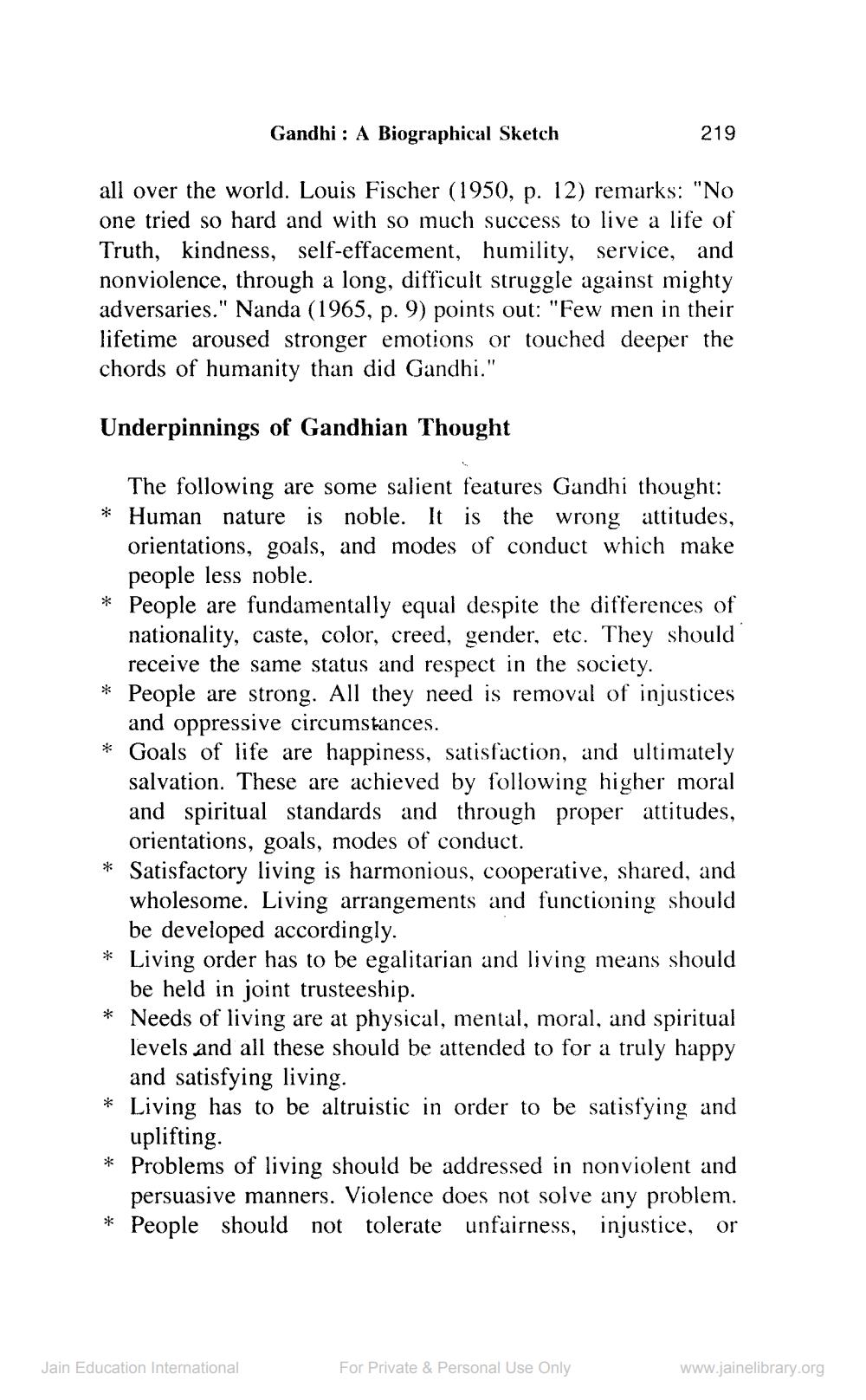________________
Gandhi : A Biographical Sketch
219
all over the world. Louis Fischer (1950, p. 12) remarks: "No one tried so hard and with so much success to live a life of Truth, kindness, self-effacement, humility, service, and nonviolence, through a long, difficult struggle against mighty adversaries." Nanda (1965, p. 9) points out: "Few men in their lifetime aroused stronger emotions or touched deeper the chords of humanity than did Gandhi."
Underpinnings of Gandhian Thought
*
*
The following are some salient features Gandhi thought: * Human nature is noble. It is the wrong attitudes,
orientations, goals, and modes of conduct which make
people less noble. * People are fundamentally equal despite the differences of
nationality, caste, color, creed, gender, etc. They should
receive the same status and respect in the society. * People are strong. All they need is removal of injustices
and oppressive circumstances. * Goals of life are happiness, satisfaction, and ultimately
salvation. These are achieved by following higher moral and spiritual standards and through proper attitudes,
orientations, goals, modes of conduct. * Satisfactory living is harmonious, cooperative, shared, and
wholesome. Living arrangements and functioning should
be developed accordingly. * Living order has to be egalitarian and living means should
be held in joint trusteeship. * Needs of living are at physical, mental, moral, and spiritual
levels and all these should be attended to for a truly happy
and satisfying living. * Living has to be altruistic in order to be satisfying and
uplifting * Problems of living should be addressed in nonviolent and
persuasive manners. Violence does not solve any problem. * People should not tolerate unfairness, injustice, or
Jain Education International
For Private & Personal Use Only
www.jainelibrary.org




